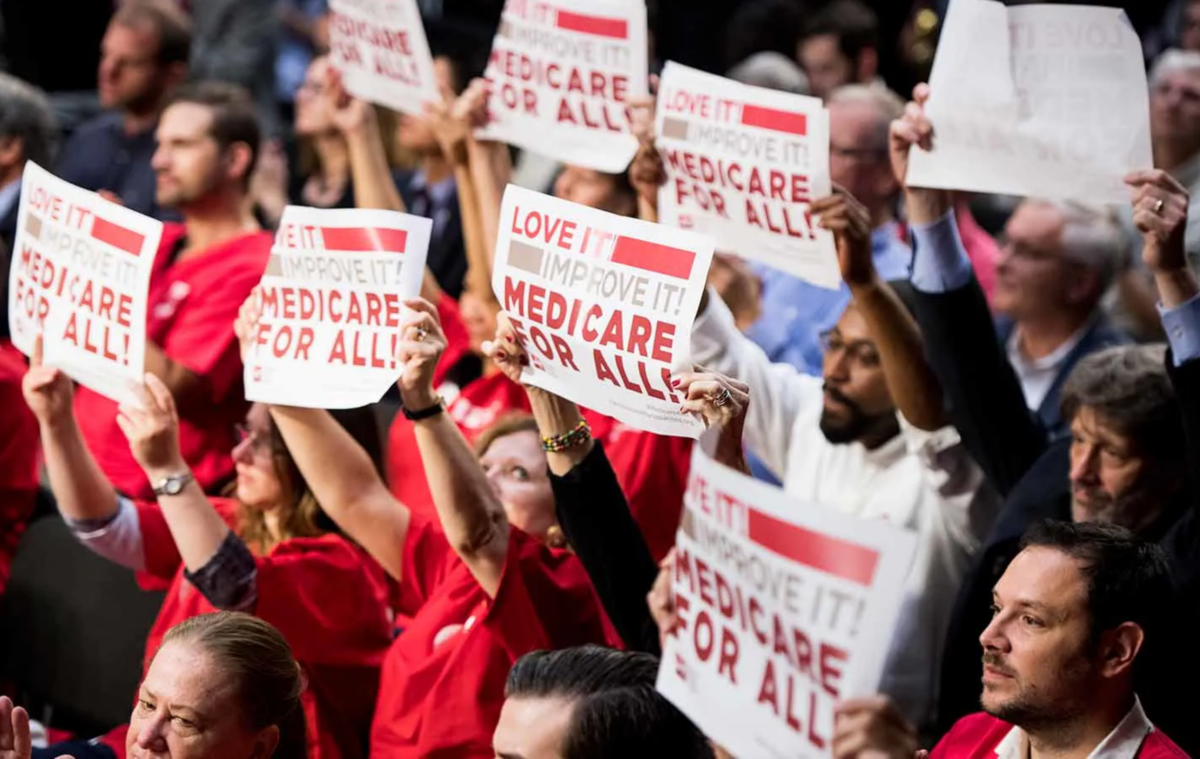The Nation on “The Human-Rights Agenda Underlying the 2019 Medicare for All Bill”

The Human-Rights Agenda Underlying the 2019 Medicare for All Bill
The main questions is not how much universal health care will cost but how we provide for basic human rights.
By Michelle Chen
The debate around health-care reform in Washington has for years been dogged by a single question: Everyone deserves health care, but how do we pay for it? But as public frustration reaches a boiling point, and millions struggle with a lack of insurance coverage or exploitative medical costs, the question is being reframed around a different set of questions: Instead of asking how to pay for it, we’re asking why the wealthiest country in the world shouldn’t have the best universal health=care system for all?
Representative Pramila Jayapal’s Medicare For All bill starts the long-overdue attempt by lawmakers to answer that question in concrete terms: a massive single-payer health plan with no out-of-pocket costs, covering everyone living in the United States, and effectively abolishing the current health-insurance industry.
Expanding upon an earlier bill introduced by Senator Bernie Sanders, the 2019 Medicare for All plan envisions an expansive, multiyear program for rolling federal health plans and private insurance plans into a comprehensive single-payer system. To ensure fully equal access, the system would distribute “risks and benefits across all of society…eliminating eligibility, enrollment, and coverage gaps,” with the tremendously ambitious goal of lowering costs at the same time. The plan is designed to ensure not just “coverage” but real care whenever needed, including primary care to neonatal care, treatments ranging from chemotherapy to insulin, and everything in between. Reproductive care, including abortion, would be free (and free of the current ideological restrictions). It also includes civil rights–based benchmarks for equity, and protections against discrimination by race, ethnicity, gender, sexual orientation, disability, immigration status, or economic background. The proposal aims for a total transition to the new system within two years, and is in stark contrast to market-based universal-coverage plans that preserve the insurance market. It aims higher than even Canada and the United Kingdom, which impose some cost-sharing for beneficiaries.
The bill is a leap into the political unknown as far as Washington goes, but resonates with the pulse of the general public: Surveys show that most Americans generally support the idea that health care should be run by the government and provided for free, as a human right.
A granular analysis by National Economic & Social Rights Initiative (NESRI) assesses how the bill measures up on several human-rights principles, based on several core principles: universality; equity, which guards against discriminatory or structural barriers to care; transparency and accountability for both government as well as private providers; and the provision of clients’ “meaningful public participation.” The assessment extends beyond public health goals to place single payer within a broad constellation of human rights, parallel to other social entitlements and political rights.
